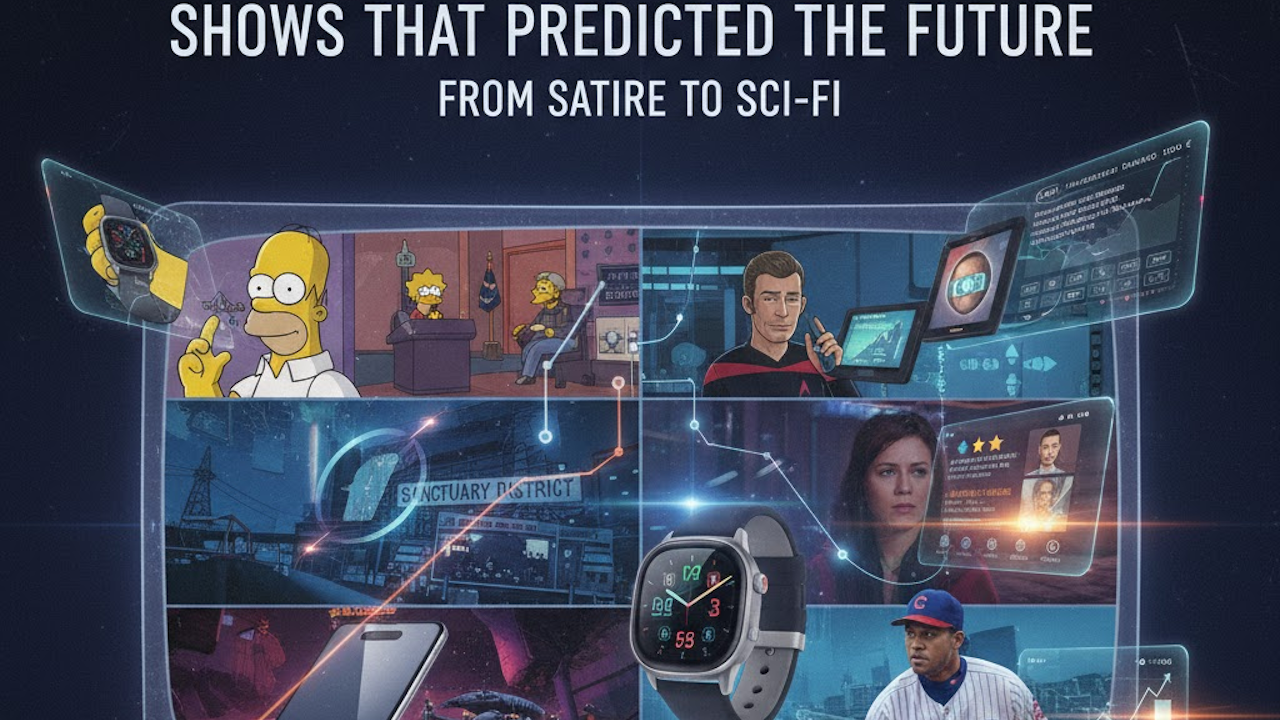The line between imaginative fiction and real-world innovation is often blurred, particularly in television. Throughout the history of the medium, certain programs have possessed an uncanny knack for anticipating future technological developments, social trends, and even specific political events. While sometimes attributed to coincidence, these fictional prophecies often stem from keen observation of present-day trajectory, allowing writers to extrapolate current trends to their logical or exaggerated conclusions. This phenomenon turns viewing into a retrospective game of “what if,” where yesterday’s fantasy becomes today’s reality.
The Unrivaled Oracle: The Simpsons
No show is more notorious for its future predictions than the animated juggernaut, The Simpsons. Over its decades-long run, the satirical series has correctly foreseen a multitude of events, often through brief gags or background details that seemed ridiculous at the time.
One of the most famous and unsettling predictions occurred in the 2000 episode “Bart to the Future,” which fast-forwarded to Lisa Simpson’s presidency. In the episode, President Lisa mentions inheriting a catastrophic budget crisis from her predecessor, none other than Donald Trump. This was over 16 years before Trump’s actual election to the presidency, making the joke an incredibly accurate foresight of his eventual political ascendancy.
Beyond politics, The Simpsons has predicted various technological and cultural shifts. A 1995 episode showed a picture phone with a screen, years before video calling became commonplace. Other episodes seem to have foreshadowed things like the invention of the smartwatch, the horsemeat scandal, and even the eventual sale of 20th Century Fox to Disney. Whether the writers are simply throwing enough scenarios at the wall to guarantee some stick, or if their social commentary is truly prophetic, remains a captivating question for fans.
The Technological Visionary: Star Trek
Where The Simpsons offers predictions through satire, the various iterations of the Star Trek franchise provided a vision of a positive, technologically advanced future, many aspects of which have since materialized. Gene Roddenberry’s original series and its successors served as a blueprint for multiple pieces of modern technology.
The classic Star Trek communicator, a small, handheld device that flipped open for immediate, long-distance voice communication, directly inspired the flip phone and arguably laid the groundwork for the modern mobile phone. Crew members on the USS Enterprise also relied on the Personal Access Display Device, or PADD, essentially a flat, touch-sensitive tablet used for reading data and accessing information. This predated devices like the iPad by decades.
Furthermore, the Universal Translator, which instantly converts alien languages, has parallels with modern real-time translation software like Google Translate. Even medical science was predicted, with the concept of the “tricorder” a handheld scanner for instant health diagnostics, mirroring the ongoing development of portable, non-invasive medical sensors. Star Trek’s predictions often focus on tools that improve daily life, painting a hopeful picture of humanity’s technological progress.
The Dystopian Mirror: Black Mirror
More recent, but perhaps more chillingly accurate, is the anthology series Black Mirror. Focused on the unexpected and often negative consequences of near-future technology, the show acts less as a forecast and more as a cautionary tale.
The 2016 episode “Nosedive” depicts a society obsessed with social ratings, where every interaction is graded on a five-star scale, determining a person’s social status, housing, and job prospects. This concept is a clear exaggeration of the social media obsession with “likes” and online validation, but it has found real-world parallels in certain nations’ use of a social credit system.
Another episode, “The Entire History of You,” features an implant that records everything a person sees and hears, allowing them to replay memories on a screen. The underlying concept of ubiquitous, storable personal data is increasingly relevant as wearable technology and pervasive data collection become the norm. Other episodes have eerily touched upon deepfake technology, the rise of synthetic companions built from social media data, and weaponized autonomous drones, all concepts that have since moved from the purely fictional realm into real-world discussion and development. Black Mirror’s success in predicting the near-future often comes from its ability to identify the darkest potential of technologies already in development.
Other Notable Predictions
Several other shows deserve mention for their surprising foresight:
- Star Trek: Deep Space Nine: The two-part episode “Past Tense” from 1995 showed a dystopian 2024 San Francisco, where homeless and unemployed people were forced into enclosed “Sanctuary Districts.” The episode’s theme of political unrest and the marginalization of the poor has found echoes in modern urban crises.
- Person of Interest: This thriller, which premiered in 2011, centered on a massive, secret government algorithm that used surveillance data to predict acts of terrorism and violence. Its storyline about mass surveillance became highly pertinent just two years later following the Edward Snowden leaks, which revealed real-life, sweeping surveillance programs.
- Parks and Recreation: The sitcom’s writers successfully predicted the Chicago Cubs winning the World Series in the 2017-set seventh season, which aired in 2015, ending the team’s long championship drought.
Conclusion
Whether through thoughtful extrapolation, satirical overreach, or simply the sheer volume of stories produced, these television programs have proven surprisingly prescient. They serve as a powerful reminder that fiction is not merely escapism, but a critical lens through which we can examine the future. As technology continues its rapid advancement, these shows offer both entertainment and valuable warning, confirming that the most effective way to predict the future is to closely observe the present.

